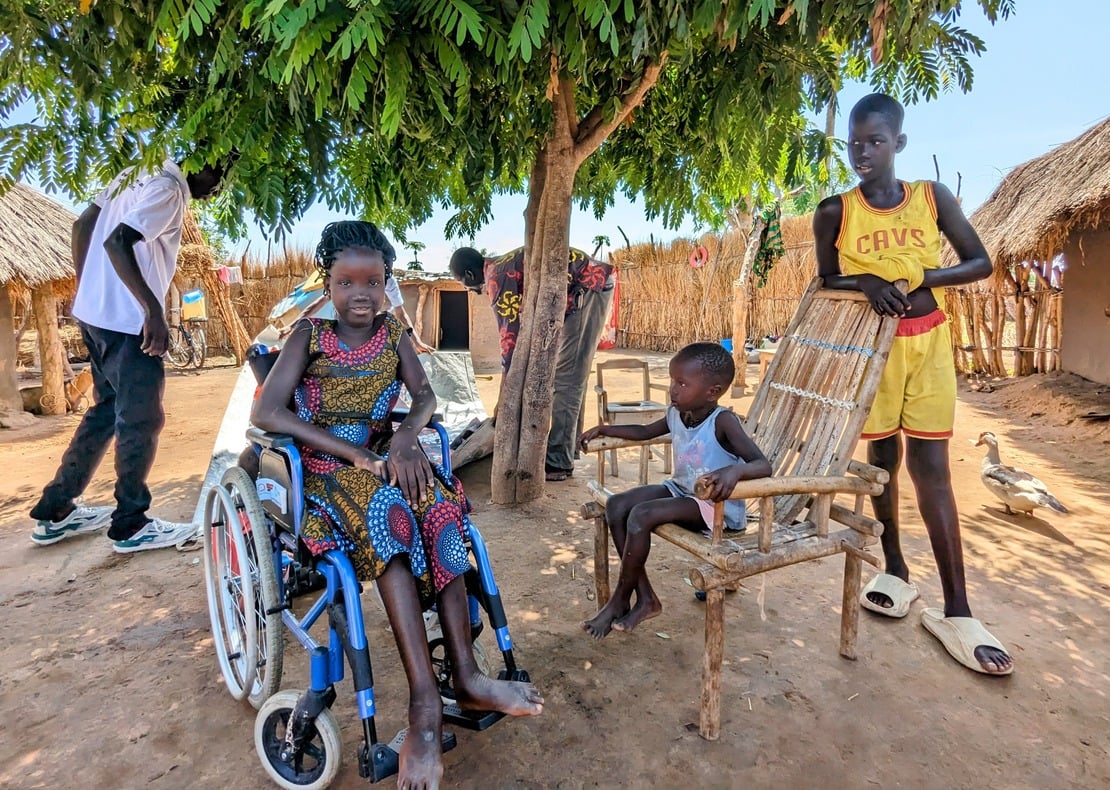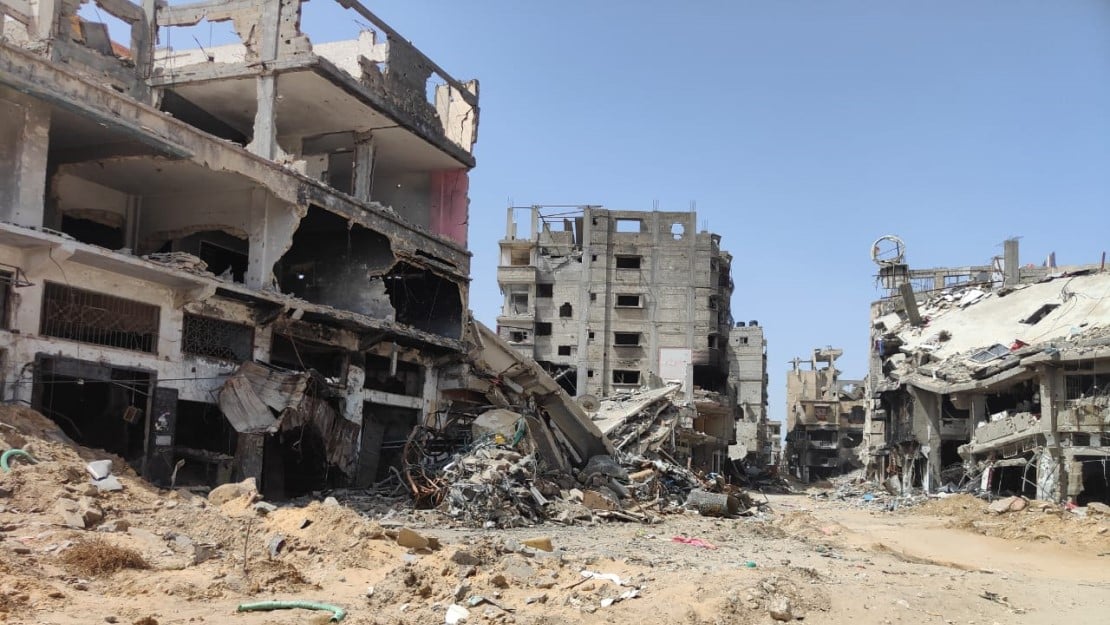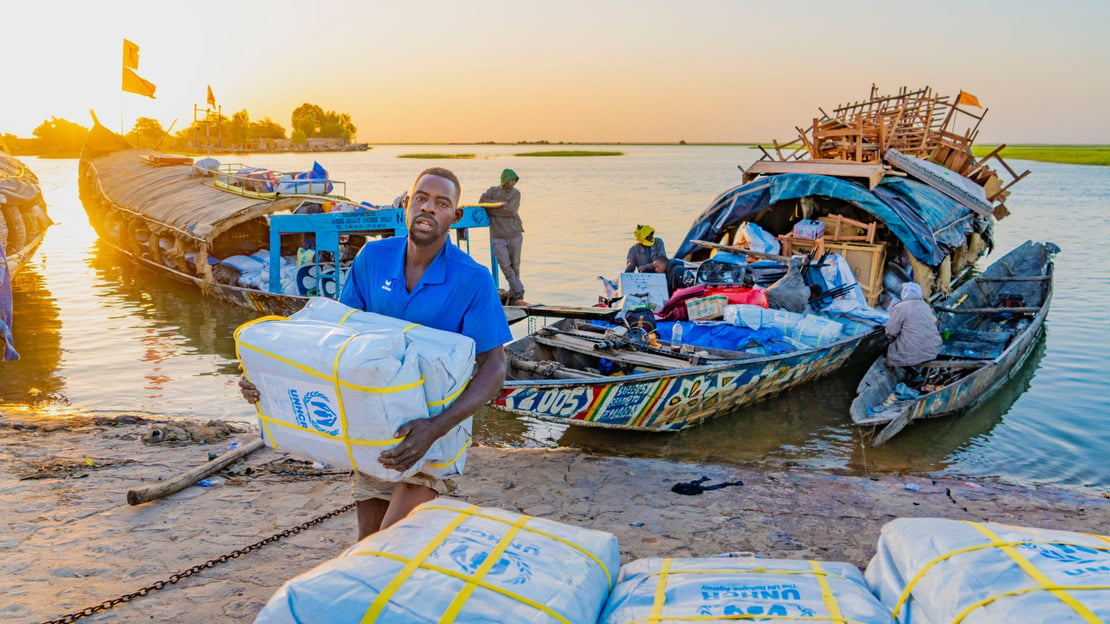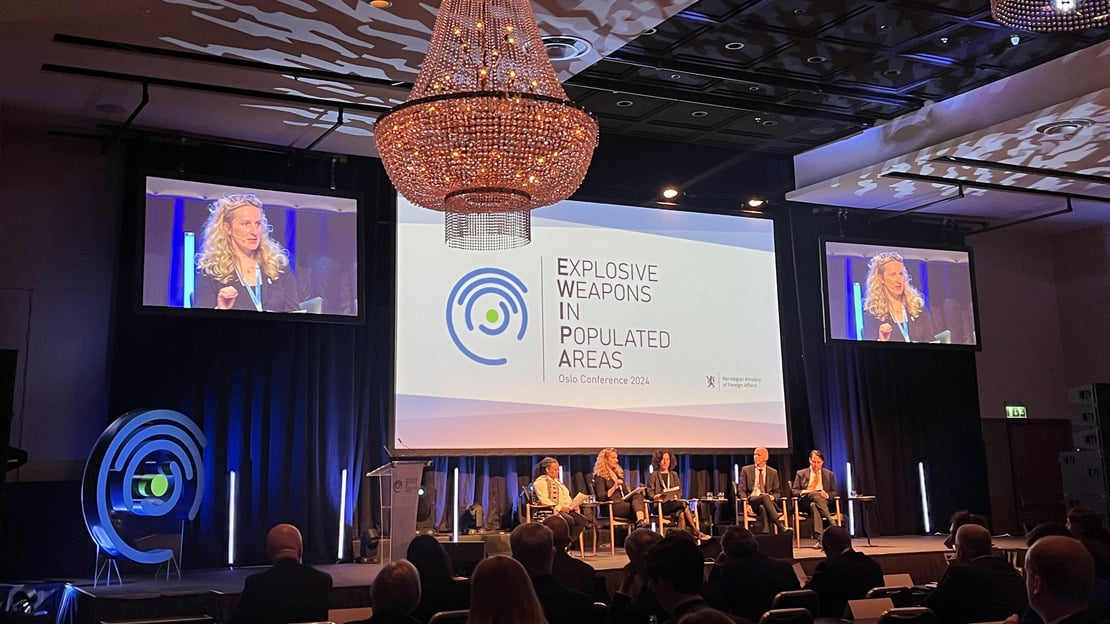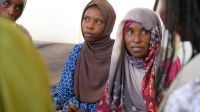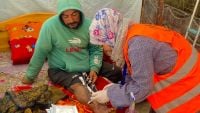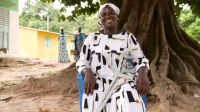Latest news
By country
By activity
- Rights (119)
- Emergency (643)
- Rehabilitation (460)
- Prevention (97)
- Inclusion (270)
- Health (189)
- Explosive weapons (337)
- Event (16)
- Covid-19 (5)
By publication date
Good News of April 2024 05/03/24
In Syria, Nepal and Uganda: children are finding new hope thanks to their prostheses and wheelchairs!
- Syria
- Nepal
- Uganda
Global Day of Action on May 2: Stop all arms transfer 05/02/24
HI, as part of the Ceasefire Now coalition, is taking part in a day of action calling for a halt to all arms transfers and an immediate ceasefire in Gaza.
- Occupied Palestinian Territories
In Mali, HI delivers 1,200 tons of humanitarian aid to help people in need 04/29/24
HI provides other NGOs in Mali with a road and river transport solution for delivering their aid to communities in need.
- Mali
Putting an end to widespread destruction and civilian harm in populated areas 04/24/24
States have gathered in Oslo to review the implementation of the political declaration against the bombing and shelling of towns and cities.
- International
Noor, walking her way back to life! 04/19/24
Noor, aged 3, is a survivor of the earthquake that struck Turkey and northwest Syria in February 2023. HI is accompanying this vivacious and resilient little girl on the way to her refound life.
- Syria
West Bank: Attending school in times of conflict is a challenge 04/17/24
Samar, 10, lives in a camp in the West Bank. She has multiple disabilities. Attending school is already a challenge, now exacerbated by the escalation of violence.
- Occupied Palestinian Territories
7 things you should know about the conflict in Sudan 04/15/24
On April 15 2023, an armed conflict broke out in Sudan. In May 2023, HI mobilized in Eastern Chad to support and care for Sudanese refugees fleeing the violence.
- Chad
Gaza: “We need double the amount of supplies” 04/08/24
Wala provides nursing care to people in their homes and shelters. She talks to us about her life, her work and the situation in Gaza.
- Occupied Palestinian Territories
Srey Neang: a prosthesis so she can return to school 04/07/24
Srey Neang's leg was amputated after she was injured by an explosive device at the age of four.
- Cambodia
Martine, a mine accident survivor, tells her story to raise awareness of the risks 04/05/24
Martine comes from Senegal. In 2009, she was injured in a mine explosion. Since then, she has been speaking out to raise awareness of the dangers of explosive devices and prevent further accidents.
- Senegal
Thanks to HI, Samira is confident and making plans for the future 04/03/24
Samira, now a teenager, lost her leg when she was 9 as the result of a bullet wound. Thanks to HI, she can now stand on her own two feet again and is confidently looking to the future.
- Central African Republic
Jamaima, orthotist: a profession of service to others 04/03/24
Jamaima Naluggya, an orthotist, is heading a project to develop the 3D printing of prostheses and orthoses in refugee camps in Uganda. This is the story of her commitment to helping others.
- Uganda
In Laos, HI is accompanying 200 children with autism on the road to education 03/29/24
HI is supporting the inclusion of children with developmental disabilities, including autism, in the provinces of Champasak and Houaphan.
- Laos
Good news in March 2024 03/29/24
Good news in March at HI: rehabilitation services and orthopedic devices in Peru, Cambodia and the Central African Republic, and inclusion in schools in Kenya.
- International
Paralyzed by a bullet, Abdellatif is determined to recover 03/21/24
The little boy, wounded by gunfire almost a year ago, is working hard to regain feeling and mobility in his legs through intensive rehabilitation sessions, supported by HI’s team in eastern Chad.
- Chad


